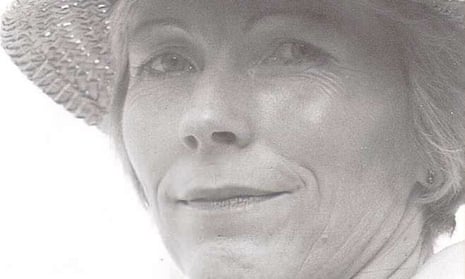Vera Wülfing-Leckie, my former wife, who has died aged 66, was a lover of Africa, a homeopath and a translator.
Vera’s father had been a Russian prisoner-of-war. Her mother had fled before the advancing Russians from what became East Germany. The cold war seems distant now, but to Vera’s parents the threat was very real. It explained their settling in Lörrach, Germany, close to the border, from where they could get quickly into Switzerland. Despite her many accomplishments, that same sense of apprehension informed Vera’s childhood, her life and her death.
Born in Tübingen, Germany, Vera went to primary school there before her parents, Gert and Ellen Wülfing, both doctors, established their medical practice in Lörrach, where Vera studied at the local grammar school. She was, like her parents, a lifelong anglophile, and when in 1977 she won a scholarship to Oxford, she seized the opportunity. She read classics and modern languages at Wadham College. Vera and I met at Oxford, where I was a fellow undergraduate, and we married in 1979.
Our first child, Douglas, was born that year, and in 1981 we moved to Scotland to run a small farm. Xenia was born in 1983 and Patrick in 1985. Vera began to study medicine at the University of Dundee.
In 1986 the accident at the Chernobyl nuclear power plant in Ukraine caused radioactive fall-out. Vera became increasingly concerned for our family’s health and, alongside her growing interest in alternative medicine, came to see a future only in the southern hemisphere.
While at Oxford, she had made firm friendships with a number of South Africans, all committed to the struggle against apartheid. Among them was Edwin Cameron, who went on to play a seminal part in forming South Africa’s new constitution; and who is also widely known for his activism on gay rights. In short, for Vera, South Africa called.
In 1989, our family moved to Johannesburg where, in 1991, our fourth child, Alexia, was born. Although our marriage ended, and I (and later our children) returned to the UK, Vera’s love for Africa flourished. So did her interest in natural healing, and she secured a doctorate in homeopathy from the University of Johannesburg in 1997, going on to establish her own practice in the city.
But living in Johannesburg became increasingly dangerous. By then Vera had met the Senegalese novelist, Boris Boubacar Diop, whose work she admired. In 2009, she sold her cherished, music- and book-filled home, and moved to Senegal. There, and although she continued to practise as a homeopath, Vera became a respected translator. She translated from the French two of Boris’s novels, published in English as Africa Beyond the Mirror (2014) and Doomi Golo (2016). Her translation of In the Company of Men, a novel by Véronique Tadjo, a writer from Côte d’Ivoire, will be published in February.
For many years Vera suffered from depression. While visiting her beloved children in the UK, her illness worsened. She is survived by her two sisters, Dagmar and Karin, her children and nine grandchildren.
